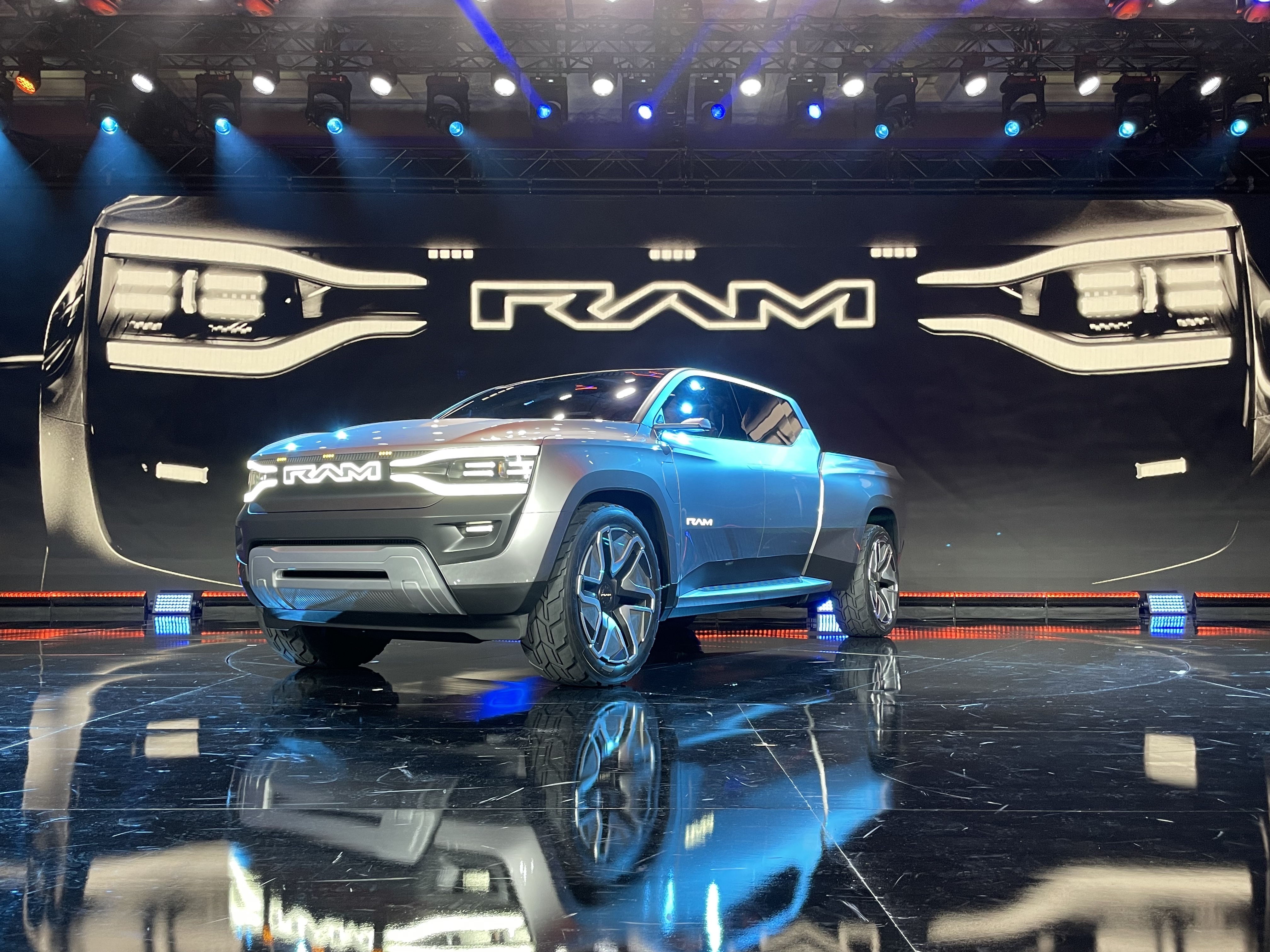
Ram Ends EV Pickup Truck Plans: What Happened and What’s Next?
In a surprising turn of events, Ram, a major player in the pickup truck market, has announced the cancellation of its highly anticipated electric vehicle (EV) pickup truck project. This news, reported by TechCrunch on September 12, 2025, has sent ripples through the automotive industry, leaving many wondering about the future of electric trucks and Ram’s strategy moving forward. Let's delve into the reasons behind this decision, the implications for the electric truck market, and what Ram might have planned instead.
Why Did Ram Abandon Its EV Pickup Truck?
While Ram has not released an official statement outlining all the factors contributing to their decision, industry analysts suggest several key reasons:
- Changing Market Conditions: The electric vehicle market is dynamic. Consumer demand for electric pickup trucks, while growing, hasn't reached the levels initially projected by some manufacturers. Factors like range anxiety (concerns about the distance an EV can travel on a single charge), charging infrastructure limitations, and the higher initial cost of EVs compared to gasoline-powered trucks may have played a role. It's possible Ram saw a softening in future projections for electric truck market growth.
- Technological Hurdles: Developing a high-performance electric pickup truck that meets the expectations of traditional truck buyers is a significant technological challenge. Meeting towing capacity requirements, ensuring adequate range while hauling heavy loads, and developing robust battery technology for demanding conditions all present considerable engineering difficulties. Perhaps Ram encountered unforeseen obstacles in these areas, making the project less economically viable. The challenge of developing a long-range electric pickup truck may have been too great.
- Financial Considerations: Investing in electric vehicle technology requires substantial capital. Developing a new platform, building a battery manufacturing facility, and retooling existing factories all represent significant expenses. Ram may have determined that the potential return on investment for the EV pickup truck did not justify the required financial commitment, especially given the other demands on their resources. The cost of developing electric vehicles is substantial.
- Shifting Focus to Alternative Technologies: The automotive industry is exploring various alternative fuel technologies beyond pure electric. Hydrogen fuel cells, plug-in hybrid vehicles, and advanced gasoline engines are all contenders for the future of transportation. It is conceivable that Ram decided to redirect its resources towards one or more of these alternatives, believing they offer a more promising long-term solution. Perhaps Ram is exploring hydrogen fuel cell truck technology.
The Impact on the Electric Truck Market
Ram's decision to discontinue its EV pickup truck development is undoubtedly a setback for the electric truck market. It raises questions about the overall viability of electric trucks and could potentially dampen investor enthusiasm for the sector. However, it's important to remember that the EV market is still relatively young and rapidly evolving.
Other manufacturers, such as Ford, Rivian, and Tesla, are still actively pursuing electric pickup truck development. Their continued success will be crucial in shaping the future of the market and demonstrating the potential of electric trucks to a wider audience. The cancellation might create an opportunity for competitors to capture a larger share of the market, especially those offering affordable electric pickup trucks.
What's Next for Ram?
While the cancellation of the EV pickup truck may seem like a step back, it could also be an opportunity for Ram to reassess its strategy and focus on other areas. Possible scenarios include:
- Focusing on Plug-in Hybrid Trucks: Ram could prioritize the development of plug-in hybrid (PHEV) trucks. PHEVs offer a balance between electric range for shorter trips and gasoline power for longer journeys, potentially alleviating range anxiety and appealing to a broader range of customers. Investing in Ram plug-in hybrid truck technology could be a smart move.
- Developing Advanced Gasoline Engines: Ram could invest in improving the efficiency and performance of its gasoline engines. Advanced technologies like turbocharging, direct injection, and variable valve timing can significantly enhance fuel economy and reduce emissions without requiring a complete shift to electric power.
- Exploring Hydrogen Fuel Cell Technology: As mentioned earlier, hydrogen fuel cells offer another promising alternative to gasoline engines. Ram could allocate resources to researching and developing fuel cell technology for its trucks, potentially offering a zero-emission solution with a longer range than battery-electric vehicles.
- Re-evaluating and Re-entering the EV Market Later: Ram could be taking a temporary pause to observe market trends, refine its technology, and develop a more competitive EV pickup truck for the future. This approach allows them to learn from the successes and failures of other manufacturers and potentially enter the market with a more compelling offering down the road.
Conclusion: The Future of Pickup Trucks is Still Evolving
Ram's decision to end its EV pickup truck project highlights the challenges and uncertainties surrounding the electric vehicle market. While this news may be disappointing for some, it's important to remember that the automotive industry is constantly evolving. Ram's future direction will depend on various factors, including technological advancements, consumer demand, and government regulations. The race to develop the ultimate pickup truck is far from over, and Ram will likely continue to be a major player in shaping its future, whether with plug-in hybrid ram trucks, improved gasoline engines, or a re-envisioned electric strategy. It remains to be seen what their next move will be, but one thing is certain: the future of pickup trucks is still very much in flux.
Ultimately, the success of any alternative fuel technology, whether electric, hybrid, or hydrogen, will depend on its ability to meet the diverse needs of truck buyers, including performance, range, reliability, and affordability. The manufacturers who can effectively address these challenges will be best positioned to succeed in the evolving automotive landscape.